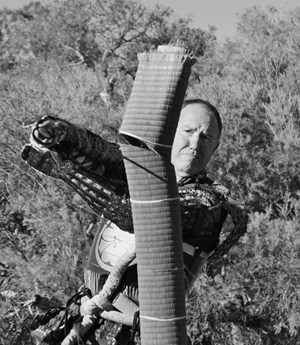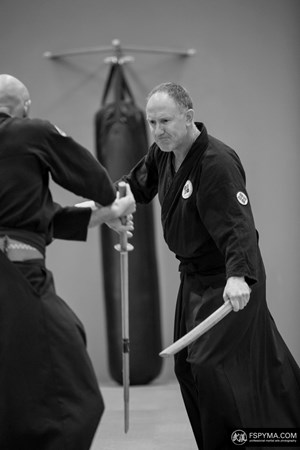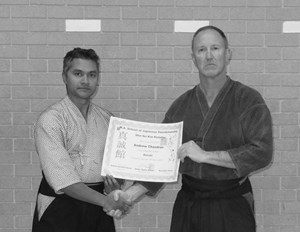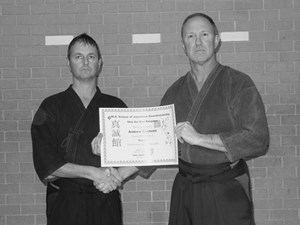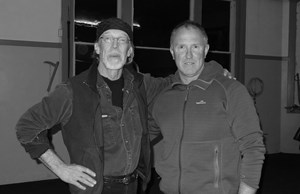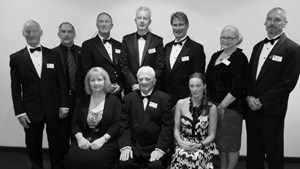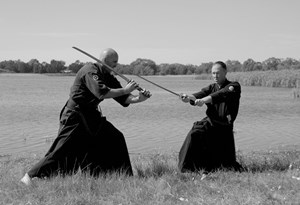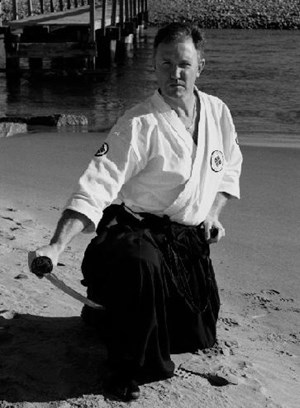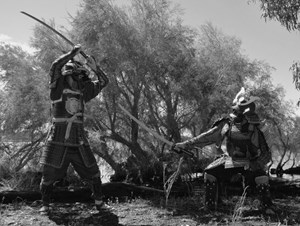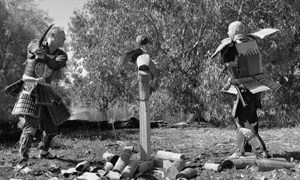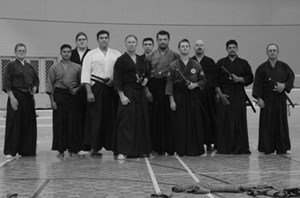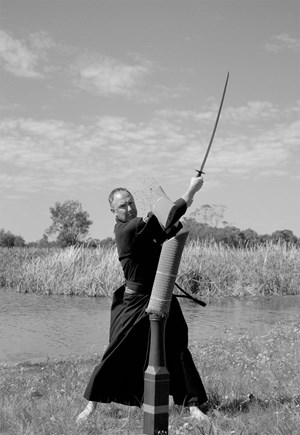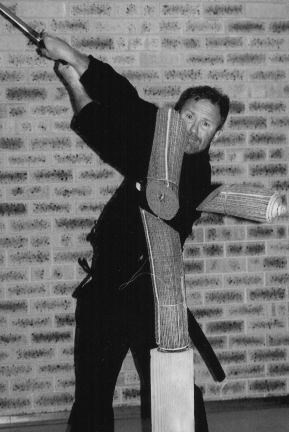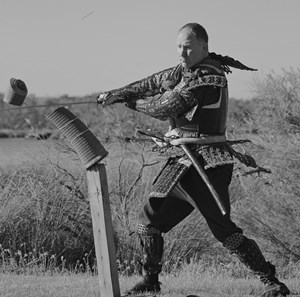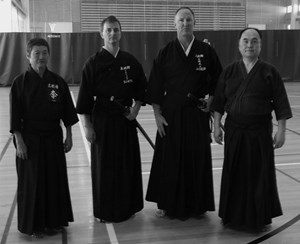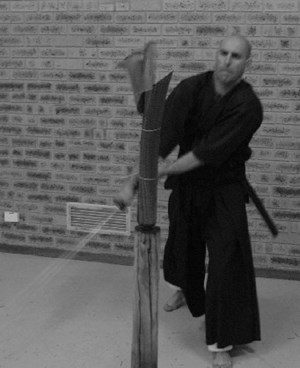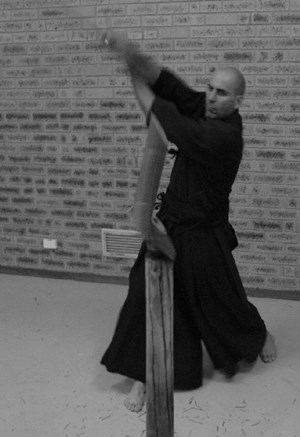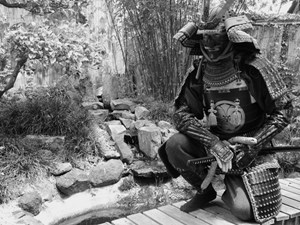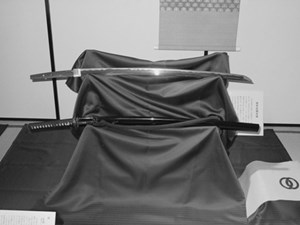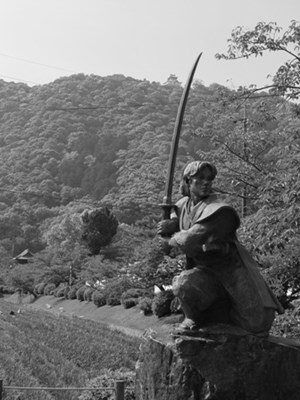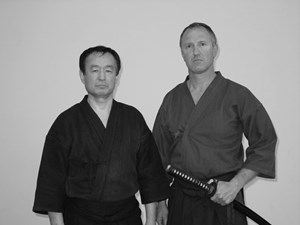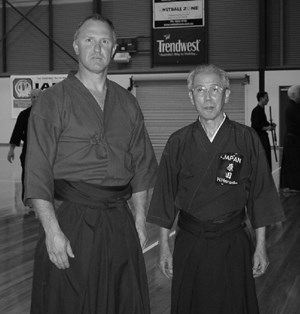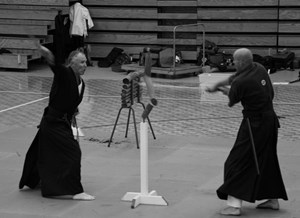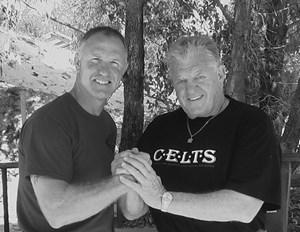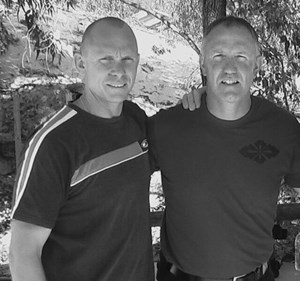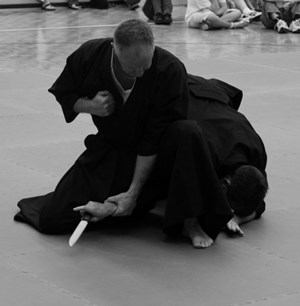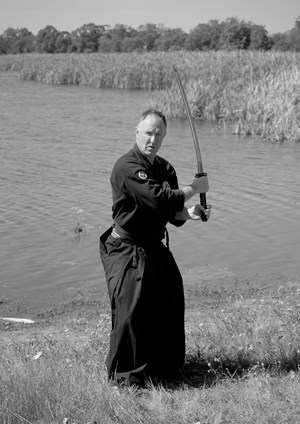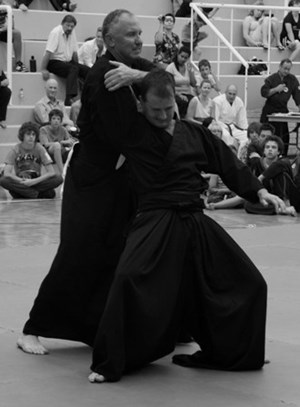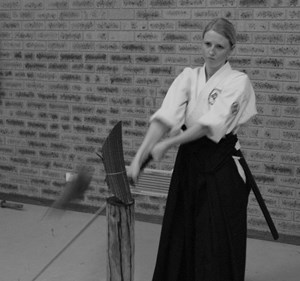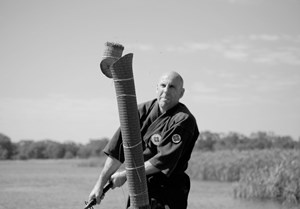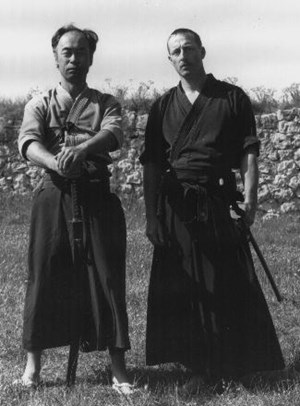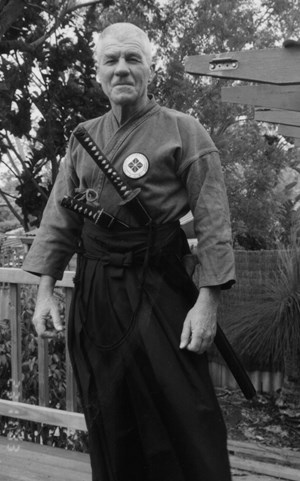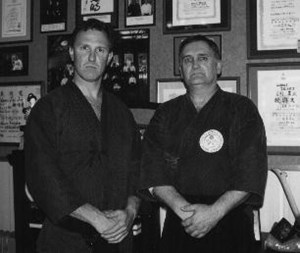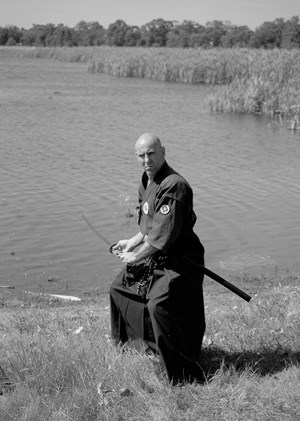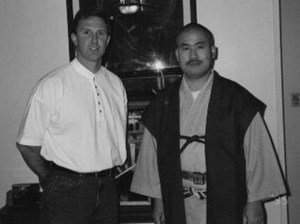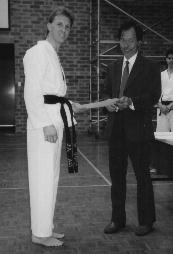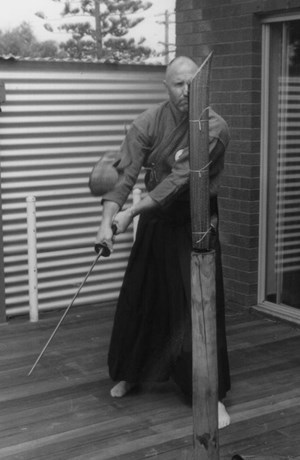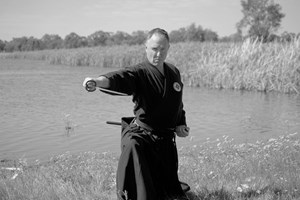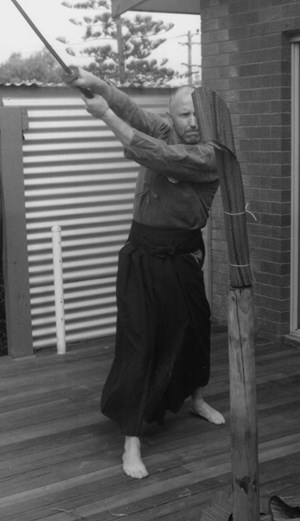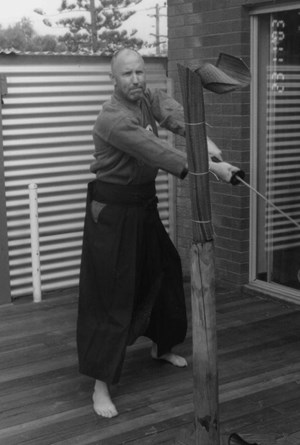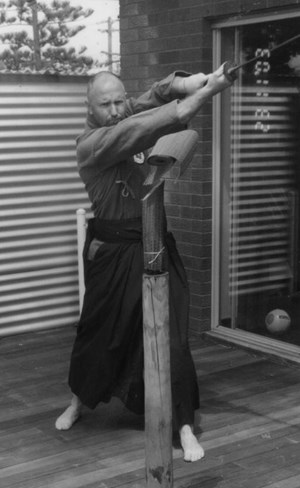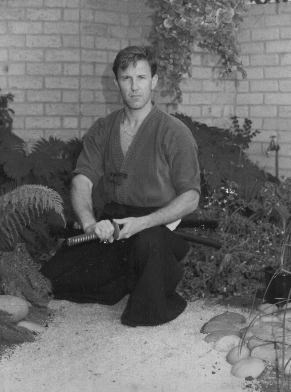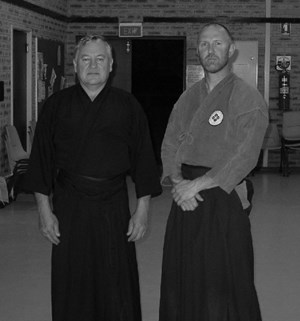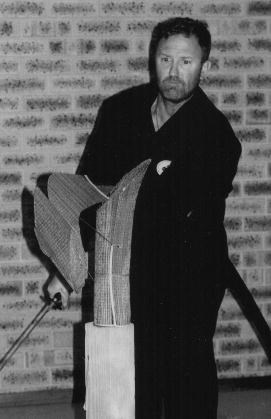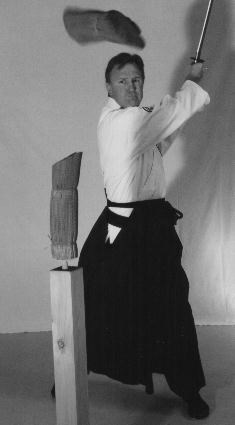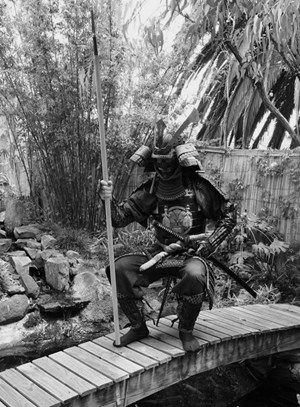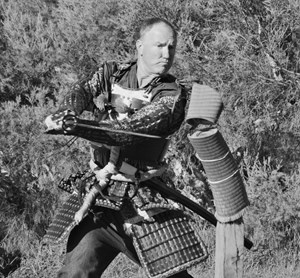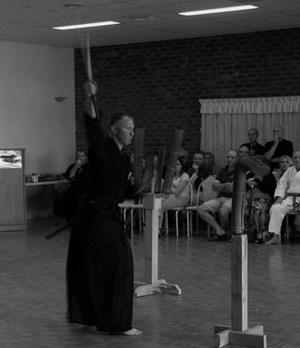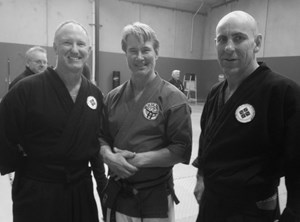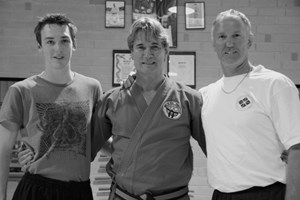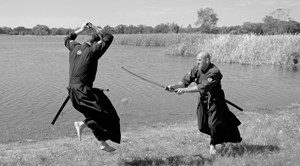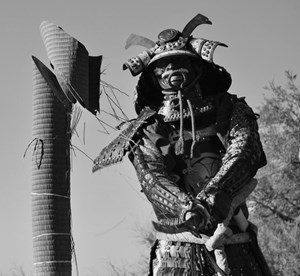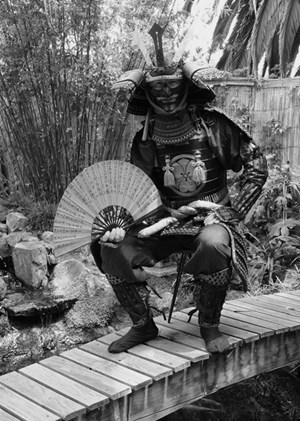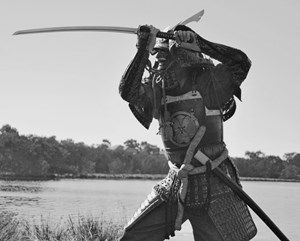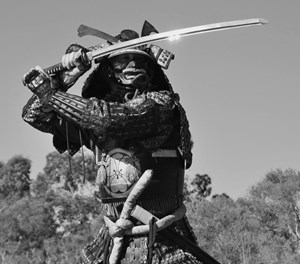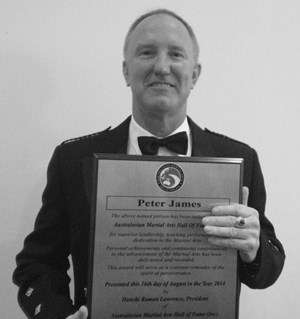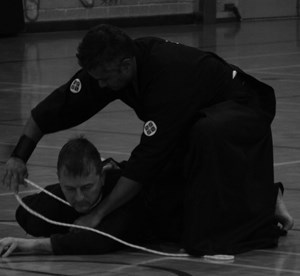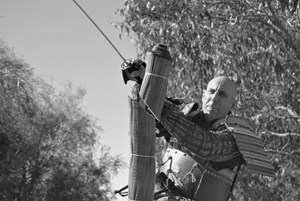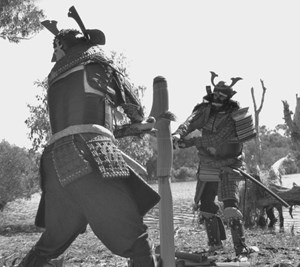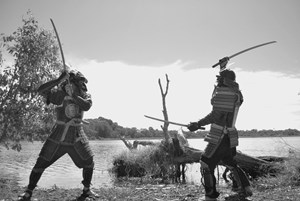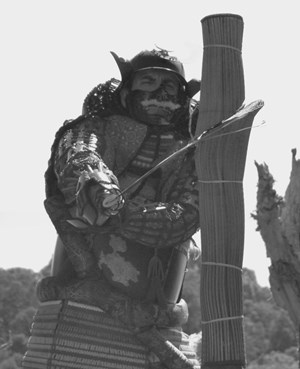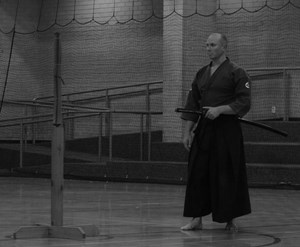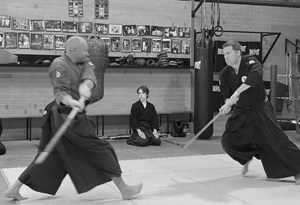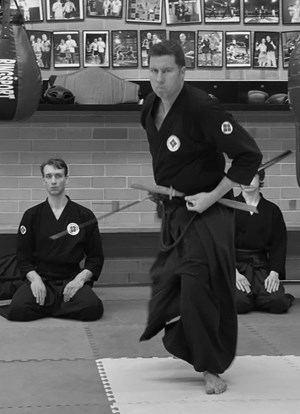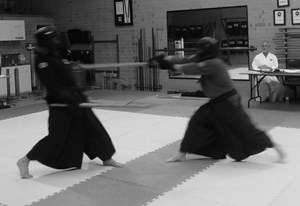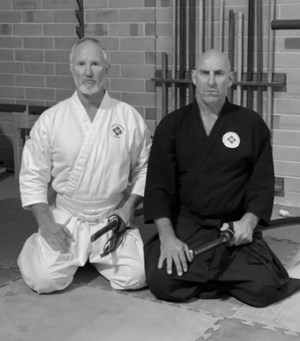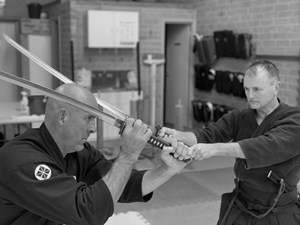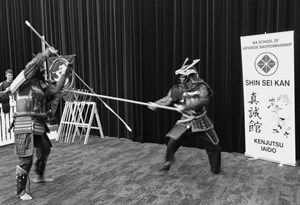Zen and the Sword
'To train your inner self you can win over your
opponent,
but to train to beat your opponent you may never win
over
yourself' (Kensho Furuya)
For over 700 years the religious sect of Zen Buddhism has been
associated with many peaceful pursuits or disciplines in Japan.
Paradoxically, the sword is also included in these pursuits.
Although Zen was brought to Japan in the 7th Century is wasn't
until the 12th Century when a Buddhist monk named Eisai gave Zen an
independent status. Soon after it was adopted as the Samurai's
religion. Zen is very useful for students of the sword because at
its very core are the principles of self mastery.
The very basics of Zen are:
The uncluttered mind, remaining focused,
Seeing things as they really are; and
Action without conscious thought.
Zen was never used to specifically train warrior in any way, Zen
is just Zen. However, during the age of internal strife in Japan,
when conflict was constant and warriors were well employed, they
were encouraged to study Zen to assist their fighting ability. This
is because of what Zen provide to the student; self-mastery. The
concept be applied by anyone pursuing any activity, not just the
warrior.
The study of Zen is very spartan and disciplined, requiring many
hours of contemplation and meditation. Students are given a Koan or
unsolvable riddle to meditate on to bring the student to the
realisation that the genuine inwardness of truth is existential and
experiential, not intellectual. When students 'know' reality and
truth are within instead of just understanding it or interpreting
it, there is an enlightened moment. The warrior was not expected to
become a Zen monk but the disciplined study leading towards the
essence of Zen would inevitably make the warrior better at his
craft.
For warriors going into battle, superficially, Zen was attitude
training. To be able to face the enemy focused, without bringing
the past or the future into the present moment, is the essence of
Zen in sword work. When facing an opponent armed with one meter of
razor sharp steel, it takes a certain resolve that few of us would
appreciate today. Surviving the encounter is not the issue, victory
is the only option. Zen meditation taught the warrior to empty his
mind and focus, to avoid making assumptions, but act without
conscious thought. The result for the warrior was the ability react
to the situation as it unfolded without crowding the moment with
irrelevant thoughts, that would ultimately diminish his ability as
a fighter.
There is a huge paradox that exists when we start to look at Zen
as a religion and the stock and trade of the Samurai. Zen is a
branch of Buddhism, and Buddhism is a religion where the very basic
premise is peace. No one has ever died in the name of Buddhism. So
how does the religion of peace, translate into the very violent
world of the professional 14th century warrior? Unlike most of the
religions of the world, Zen does not have any ceremonies or
doctrines to follow; the process is one of self-discovery, not
outwardly focussed in any way. There is no higher being or purpose,
we are left with only ourselves.
The Zen master merely provides the guide to self-discovery,
nothing more. Therefore, we see Zen appearing in all areas of
Japanese life as a lifestyle based on focus and self- perfection.
What the student applies Zen to is irrelevant to the Zen master,
because Zen is everything.
The age of war ended for Japan around 1600 and peace was the
overriding influence on the people. Zen was applied to peacetime
pursuits by those who saw the benefits. Martial Arts evolved from
being an activity solely of training people for battle, to a method
of physical development and training. War was no longer an issue in
Japan, so the Martial Arts were used for personal development, with
the lynchpin being Zen and the message being peace. Zen had not
changed, but the focus of the application has. Man's application of
the knowledge has changed not the knowledge itself.
Today Zen and the Sword are still very much entwined, not for the
sword as a killing method, but for using the sword as a method for
understanding the application of Zen, in the same way as
Calligraphy, Noh theatre or Ikibana does. Self-mastery is the goal
and nothing more. Zen is the path to self mastery and self
fulfilment. Zen lives in conjunction with our lives, not in
contrary to it. Even a Christian or Muslim can study Zen, there is
no conflict.
